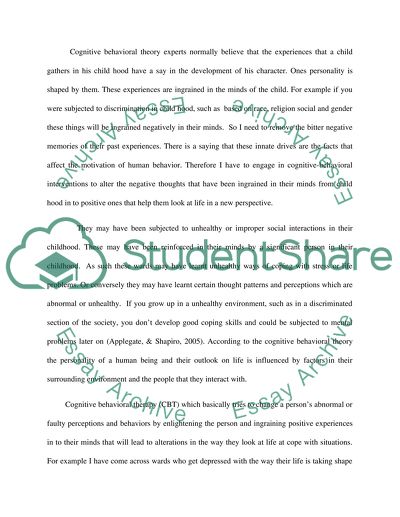Cite this document
(“Cognitive Behavioral Theory Essay Example | Topics and Well Written Essays - 2500 words”, n.d.)
Retrieved from https://studentshare.org/sociology/1510140-social-work-principles
Retrieved from https://studentshare.org/sociology/1510140-social-work-principles
(Cognitive Behavioral Theory Essay Example | Topics and Well Written Essays - 2500 Words)
https://studentshare.org/sociology/1510140-social-work-principles.
https://studentshare.org/sociology/1510140-social-work-principles.
“Cognitive Behavioral Theory Essay Example | Topics and Well Written Essays - 2500 Words”, n.d. https://studentshare.org/sociology/1510140-social-work-principles.


